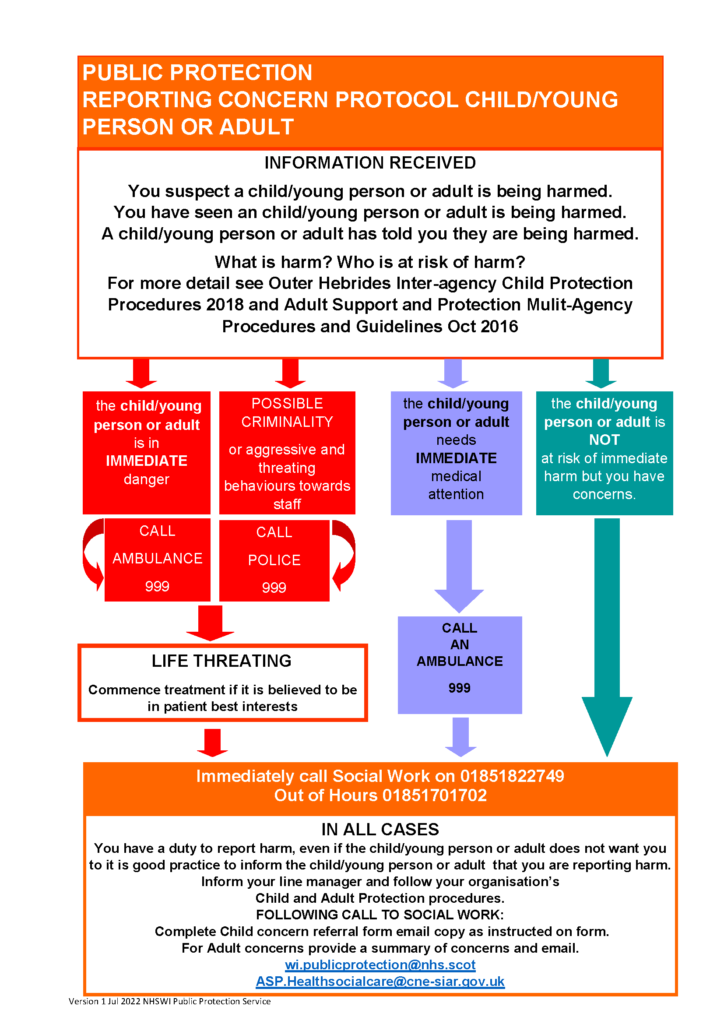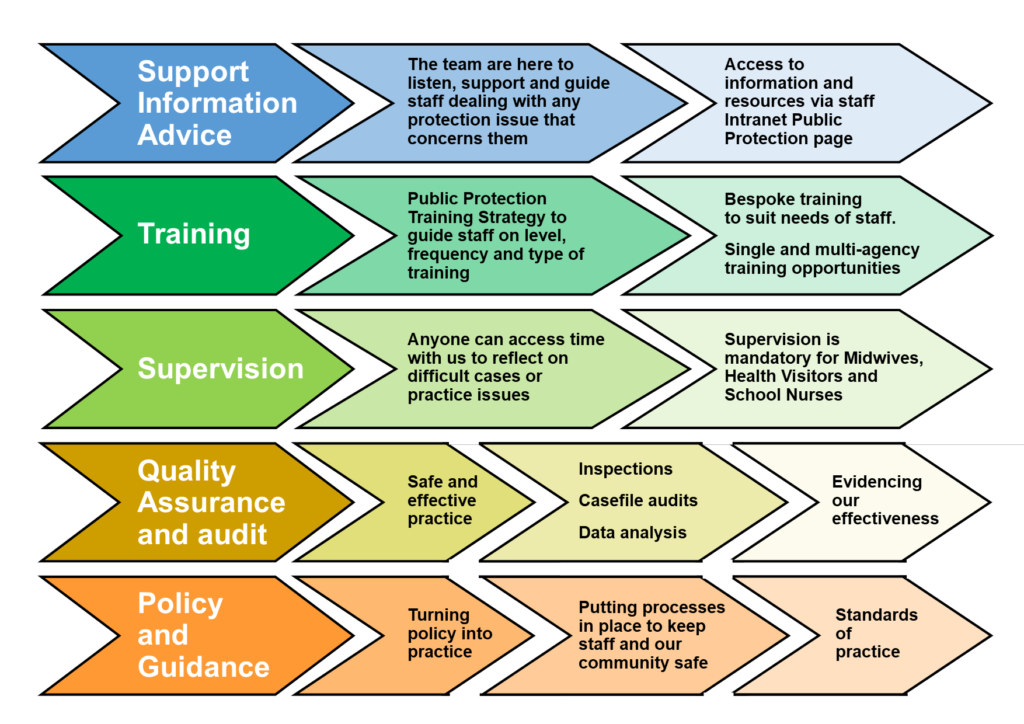Heading 2
Public Protection is about preventing harm to vulnerable groups within society. It is an issue of fundamental importance to NHS Western Isles. It remains a top priority and also one of our most challenging areas of work.
There are clear links to be made across a range of service areas that relate to public protection:
- Child Protection
- Adult Support and Protection
- MAPPA(Multi Agency Public Protection Arrangements for the management of sexual and/or violent offenders)
- Violence against Women and Girls/Gender Base Violence/Domestic Abuse.
As the provider of universal health services, any member of the public or member of staff may be become aware of an individual at risk of harm. All children, young people and adults at risk have a fundamental right to be protected and safe. It is the responsibility of all of us to be alert to circumstances which might place individuals at risk of abuse or neglect, and know what action to take if there is a concern.
NHS Western Isles has an essential role in preventing and reducing the risk of abuse or neglect. There is a commitment to ensuring that all its staff are confident and competent to undertake their role in identifying and responding appropriately to concerns.
All NHS Western Isles staff have a duty to report any concerns.
We are here to help, guide and support you to do that. The image below is a guide on how to report a concern (alternatively download pdf version here).


Public Protection, NHS Western Isles, South Beach, Stornoway, Isle of Lewis, HS1 2BB.
Tel: 01851 708029
Email: wi.publicprotection@nhs.scot
Staffing
-
Dorothy Macdonald
Lead Nurse for Public Protection
Email: dorothy.macdonald2@nhs.scot
-
Donald Gillies
Nurse Advisor for Public Protection
Email: donald.gillies@nhs.scot
- NEXT PAGE: I am a Carer
- LAST REVIEWED ON: February 17, 2025

